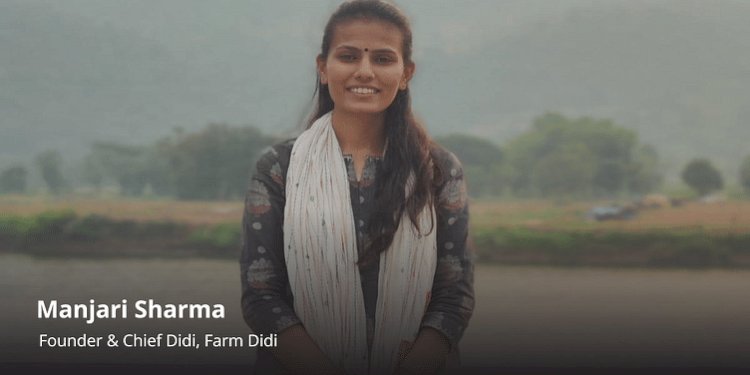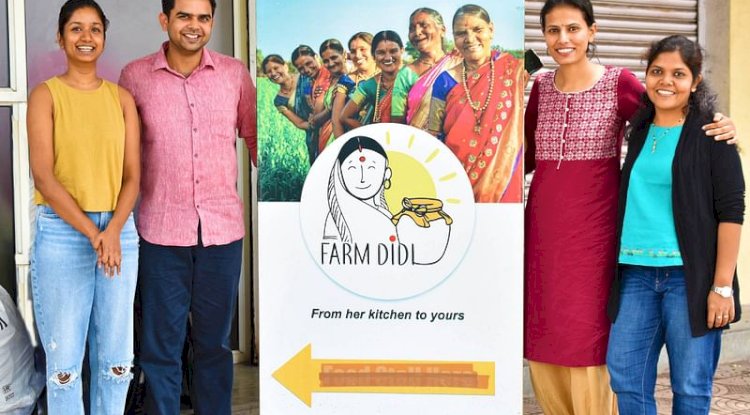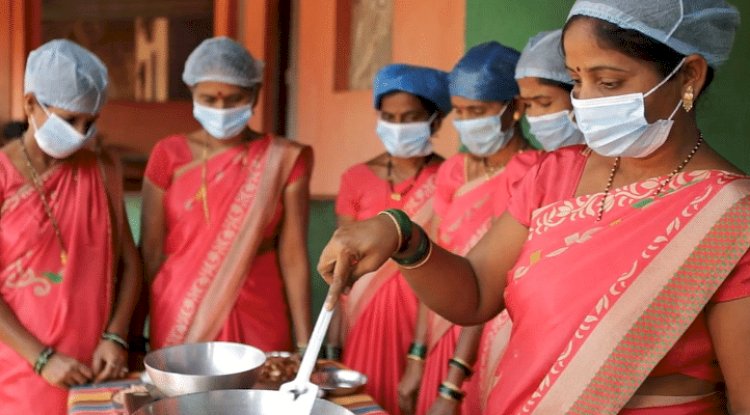This Didi’s Food-Tech Startup Is Empowering Women In Rural Maharashtra
Manjari Sharma is the founder of Farm Didi, a food-tech startup that pursues to empower one million rural women. Only a year old, it has enabled 1,080+ women entrepreneurs via an initiative impacting 40+ villages in rural Maharashtra.
By Ishika Rastogi

A line that resonated all through Manjari Sharma’s travels through 3 districts of Bihar at some stage in her mission even as at IIM-Calcutta turned into ‘didi, hum aur kya kar sakte hai?’ (Sister, what extra can we do?).
Five years later the farm will be the inspiration for Didi a technology-based food startup that enables women in rural Maharashtra to produce quality food and earn an income.

In 2016, as part of her IIM mission, Manjari worked with the Bihar kingdom authorities to recognize the kingdom of women’s empowerment. guys had moved to the cities for work, at the same time as women had been using the financial system – be it in agriculture, looking after households, shopping for potable water, operating in the fields, or doing household chores.
Manjari witnessed the migrant disaster all through the lockdown and this made her extra inclined to start up, with a vision to empower a million girls in rural India.
She felt meals would be the region's way to begin, as 80% of rural women understand the commercial food enterprise – they're already within the agricultural cost chain and armed with commercial information and information in this vicinity.
And hence, Farm Didi began in 2021 with a focal point on eighty villages in rural Maharashtra. to begin with, she thought micro-loans could help the girls emerge as entrepreneurs, but on nearer examination, she observed that money alone might not make a business worthwhile.
“While I was interviewing women from SHGs in Kolhapur, Satara, Aurangabad, Pune, and Amravati, I found that whilst there was the surrounding assistance for finance, they lacked know-how in advertising. corporations failed because those girls did no longer recognize about packaging, how to talk to the store, or wherein to promote,” Manjari explains.
She launched a pilot for an app known as the Didi business, wherein women marketers have to list their products and, without delay, sell to the consumers, and around one hundred SHGs.
Manjari quickly started out working on education for the SHGs – with a kind of mini-MBA entrepreneurship program that covered all food safety components and commercial enterprise aspects.
Allowing didis with the proper methods

The Farm Didi method is easy. The NGO enables Farm Didi to become aware of “formidable” SHGs with a terrific background. it's also set to sign an MOU with the Maharashtra government to become aware of and work in clusters.
Farm Didi gives 20 SKUs that include pickles, papads, chutneys, and gift packing containers. For the festive season, they may engage in Diya making and handicrafts.
Manjari is the Founder and leader of Didi and works with a 16-member crew. and Kavya Panneer Selvam, an IIMC alumna who leads supply and exceptional.
Farm Didi has to this point labored with 1,080 ladies, part of 108 SHGs in 40 villages. these are predominantly in Raigad and Aurangabad, and the startup will quickly make bigger to Sholapur, Kolhapur, and Amravati.
Manjari talks fondly of Tanisha didi in Raigad, who has been able to ship her kids to high school after she has become an entrepreneur with Farm Didi. She has been in a position to buy belongings and owns gold jewelry – something she could never do earlier.
Farm Didi is bootstrapped with some funding from angel buyers.
Manjari now plans to associate with banks to improve the kitchens to guarantee higher pleasant.
“Twenty to 50% of the cash earned is going returned to the SHGs. a number of them keep to promote their products inside the local market and feature emerge as well-known,” she adds.
“Our plan is to paintings with around three hundred retailers in Pune and extend to Mumbai, Delhi, Calcutta, and Tier I towns, and in the long run impact a million human beings in rural India,” Manjari says.
What's Your Reaction?



















